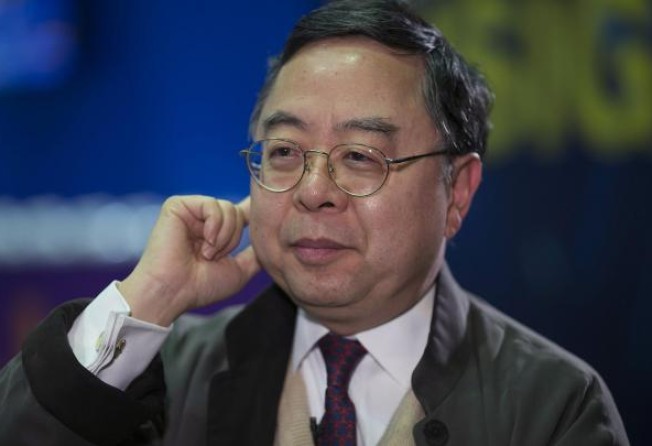
Hang Lung has no timetable for sale of 1,400-flat stockpile
Property firm says sitting on 1,400 homes for 10 years costs less than 1pc of development costs as it records rise in underlying profit of 98pc

Hang Lung Properties, which has held on to 1,400 completed flats for 10 years, said yesterday the annual holding cost for stockpiles of unsold units was less than 1 per cent of their development cost.
The developer said it had no concrete timetable for disposing of all of the unsold flats.
Last year, Hang Lung sold just 117 units - nine at the Harbourside in West Kowloon and 108 at the Long Beach in Tai Kok Tsui - at average prices of HK$32,100 and HK$10,600 per square foot, respectively.
Thanks to the high selling prices and the disposal of non-core investment properties worth HK$2.14 billion, the developer reported underlying profit rose 98 per cent for the year.
Excluding a revaluation gain on investment properties, core earnings at Hang Lung, which is the first listed developer to announce its results for last year, were HK$6.18 billion, almost double the HK$3.12 billion recorded a year earlier. Turnover jumped 29 per cent to HK$7.37 billion. Operating profit from property leasing grew 11 per cent to HK$4.89 billion, while property sales soared to HK$846 million from HK$150 million.
Hang Lung declared a final dividend of 57 HK cents per share, up 58 per cent.
Parent Hang Lung Group's underlying profit jumped 83 per cent to HK$3.56 billion, and a dividend of 60 HK cents a share was declared, 58 per cent higher than a year ago.
Chairman Ronnie Chan Chi-chung said the firm sold fewer homes than planned because of adverse market conditions.
"It is hard to tell the schedule for flat sales, as it very much depends on market conditions'" Chan said. "Previously, we had prepared sales brochures and planned to sell 300 to 400 units, but the plan was disrupted by the government's announcement of an extra 15 per cent buyer's stamp duty in late October.
"And last May, we only sold 100 units at Long Beach, although about 400 potential buyers had reserved the rights to buy. The slow sales were because of the Greek debt crisis."
In a less pessimistic market, he said, the firm would have sold as many as 700 units so far.
Chan refused to comment on the possibility of the government imposing a tax on empty units, saying that many technical issues needed to be studied by experts and government officials.
"The root of the housing problem is the government stopped land sales for nearly 10 years," he said. "In the years from 1998 to 2003, not selling land is understandable, as a result of the Asian financial crisis, the outbreak of Sars and the aftermath of Sars. But from 2005 to 2011, not selling land is inexcusable."
Despite criticism of Chief Executive Leung Chun-ying's policy address failing to deliver a short-term solution to meet housing demand and curb price growth, Chan said he believed every measure the administration introduced was right.
"For a man suffering from sickness for 10 years, it takes time to recover. In the property market, it takes time to build flats and build up the government land bank," he said.
Hong Kong was not the only city seeing an upward spiral in property prices, and people preferred to buy property as a hedge against rising inflation, Chan said.